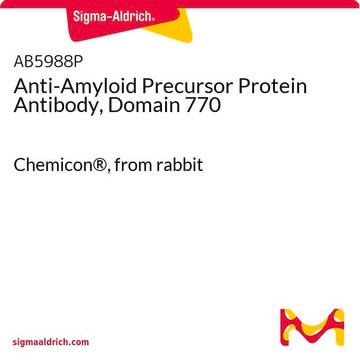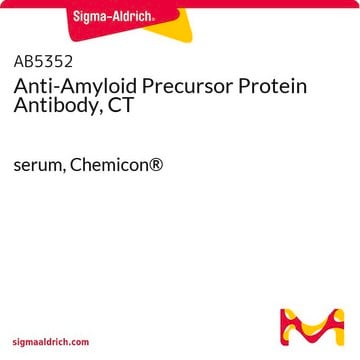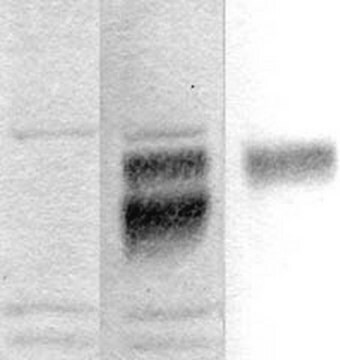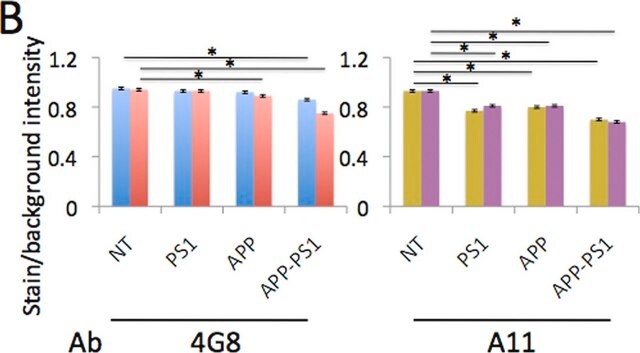AB5300
Anti-Amyloid Precursor Protein Antibody, universal
serum, Chemicon®
Synonym(s):
APP
About This Item
Recommended Products
biological source
rabbit
Quality Level
antibody form
serum
antibody product type
primary antibodies
clone
polyclonal
species reactivity
human, monkey, mouse
should not react with
bovine
manufacturer/tradename
Chemicon®
technique(s)
immunoprecipitation (IP): suitable
western blot: suitable
NCBI accession no.
UniProt accession no.
shipped in
dry ice
target post-translational modification
unmodified
Gene Information
human ... APP(351)
Specificity
Immunogen
Application
Neuroscience
Neurodegenerative Diseases
To reduce incubate the slide (Blot) in TBS (PBS) + 50mM 2-mercaptoethanol at 37°C for 3 h in the dark. Wash twice with TBS, then incubate in TBS (PBS) + 20 mg/ ml of Iodoacetic acid for 30 min at room temperature. Wash twice with TBS (PBS), block and process as usual.
Immunoprecipitation: Need to reduce and alkylate disulfide bonds to expose the epitope
Optimal working dilutions must be determined by end user.
Physical form
Storage and Stability
Legal Information
Disclaimer
Not finding the right product?
Try our Product Selector Tool.
recommended
Storage Class Code
10 - Combustible liquids
WGK
WGK 2
Flash Point(F)
Not applicable
Flash Point(C)
Not applicable
Certificates of Analysis (COA)
Search for Certificates of Analysis (COA) by entering the products Lot/Batch Number. Lot and Batch Numbers can be found on a product’s label following the words ‘Lot’ or ‘Batch’.
Already Own This Product?
Find documentation for the products that you have recently purchased in the Document Library.
Our team of scientists has experience in all areas of research including Life Science, Material Science, Chemical Synthesis, Chromatography, Analytical and many others.
Contact Technical Service








